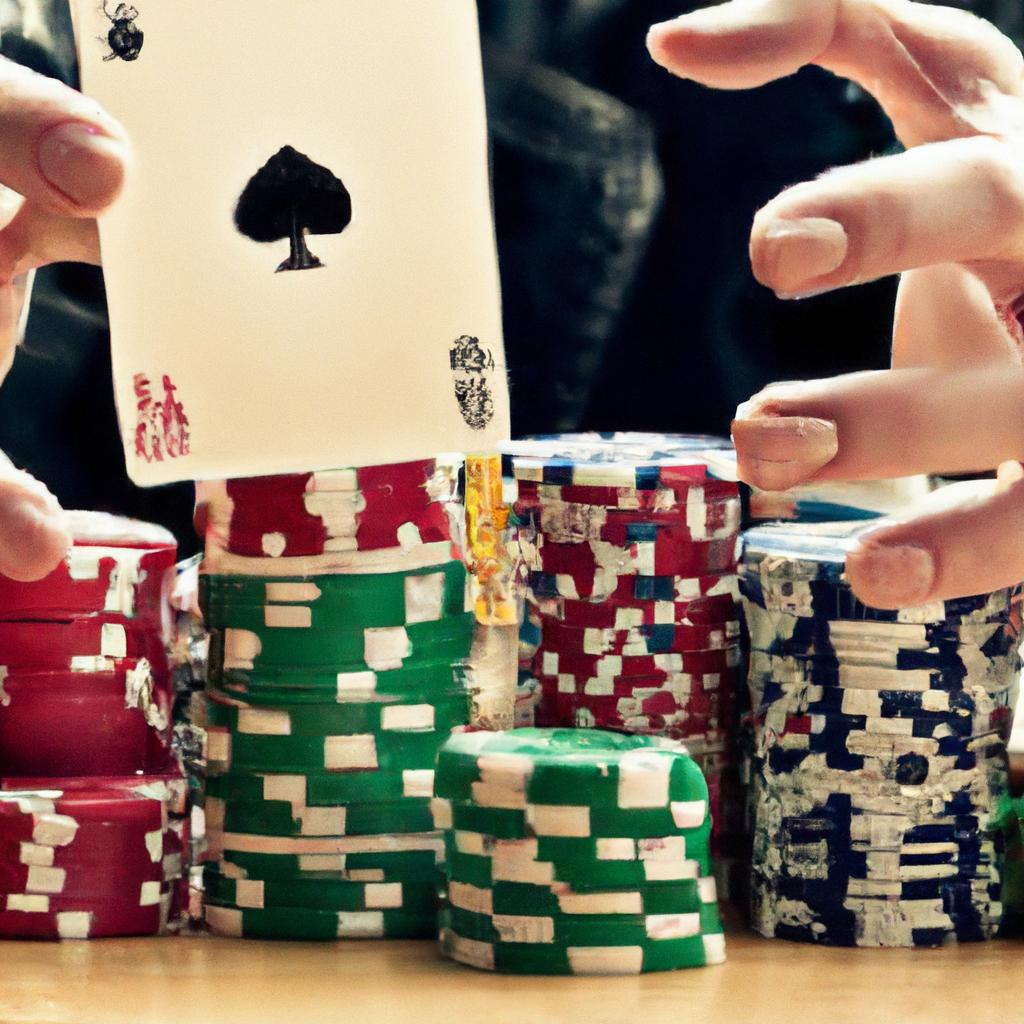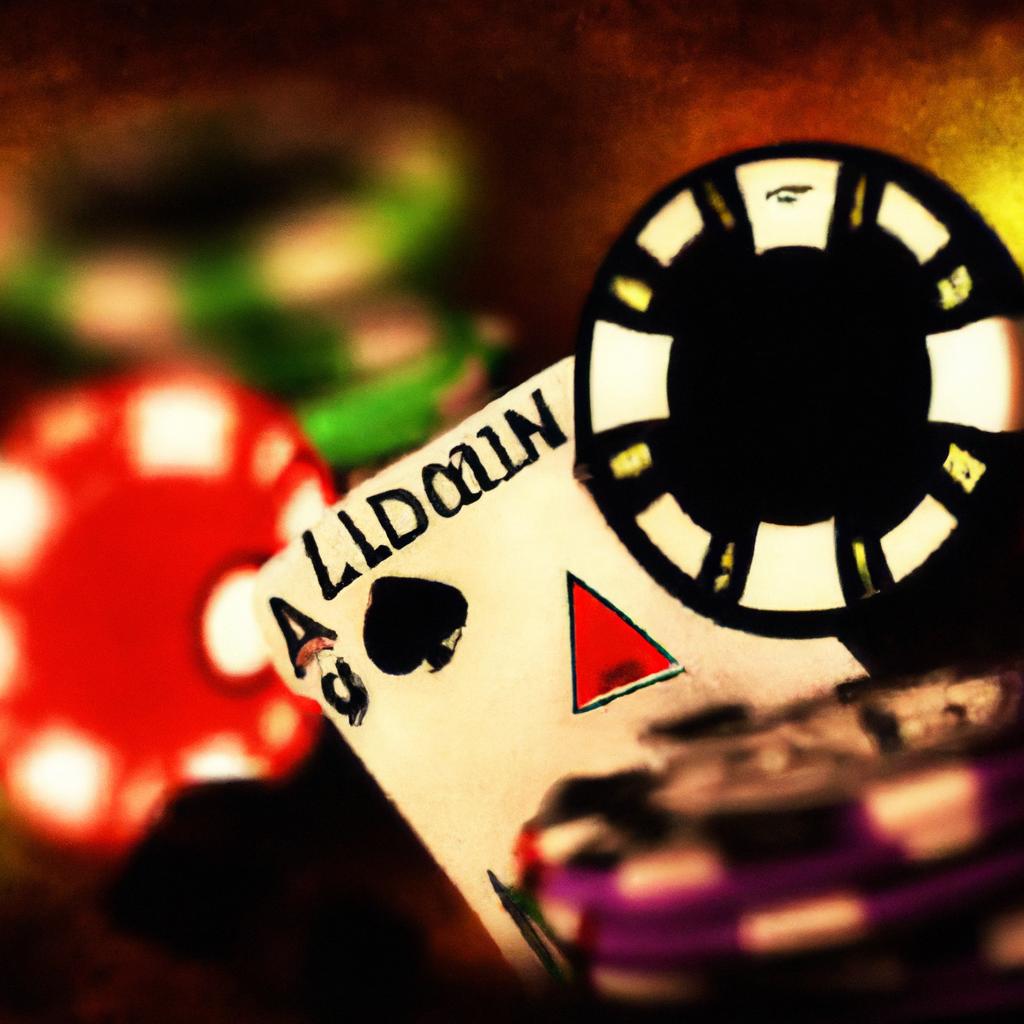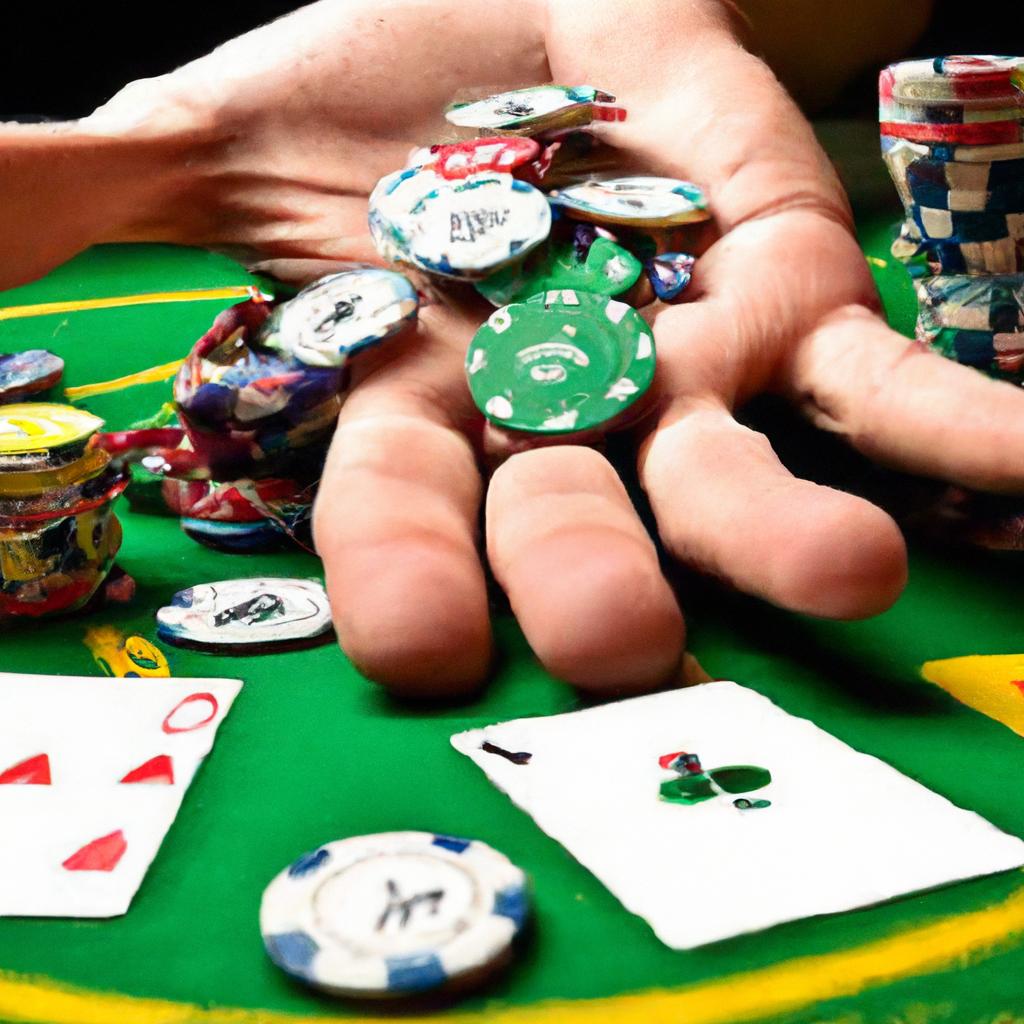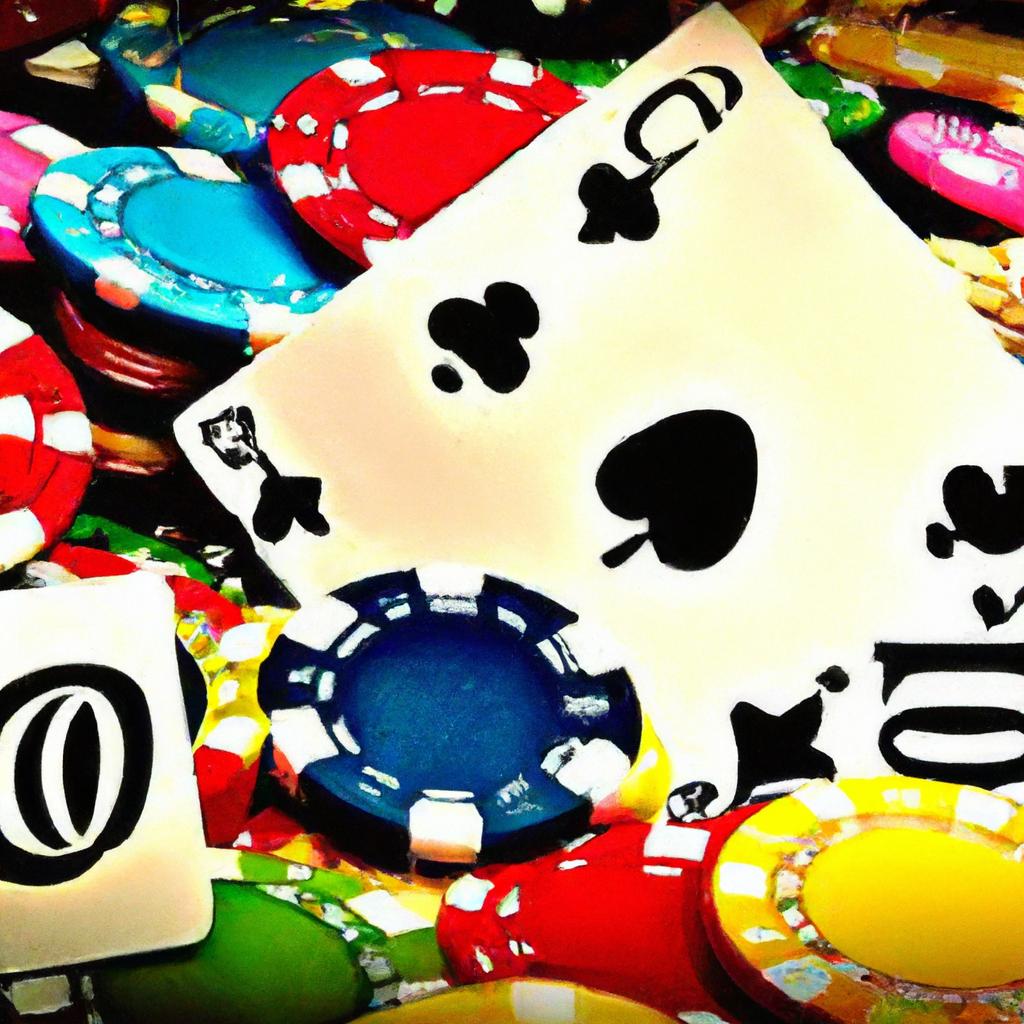In the dimly lit corners of bustling casinos, the rattle of slot machines and the shuffling of cards create a mesmerizing symphony, luring people into a world of possibility and thrill. Yet, beneath this alluring façade lies a darker narrative—one woven with stories of desperation, loss, and the insidious grip of gambling addiction. As millions are drawn to the promise of fortune,
the line between entertainment and obsession becomes increasingly blurred. This article delves into the multifaceted nature of gambling addiction, exploring its psychological underpinnings, societal implications, and the pathways to recovery. By shedding light on a topic often shrouded in stigma and misunderstanding,
we aim to foster a deeper understanding of this complex addiction and its impact on individuals, families, and communities. Join us as we navigate the highs and lows of this pervasive issue, seeking to reveal the truth that lies beneath the surface of chance and risk.
Table of Contents
- Understanding the Mechanics of Gambling Addiction
- Identifying Warning Signs and Risk Factors
- Effective Strategies for Recovery and Prevention
- Support Systems: Building a Network for Sustainable Change
- Q&A
- Insights and Conclusions

Understanding the Mechanics of Gambling Addiction
Gambling addiction is a complex issue fueled by various psychological, social, and biological factors. At its core, it often stems from a combination of emotional distress, impulsivity, and the thrill of winning. Many individuals are drawn to gambling as a temporary escape from reality, hoping that each wager might lead to financial relief or personal fulfillment. Over time, however, this behavior can spiral out of control, leading to a dependency that can wreak havoc on personal relationships, financial stability, and overall mental health. Recognizing the factors that contribute to this cycle is crucial in understanding why some individuals become trapped in this ongoing battle.
Several symptoms can indicate the presence of gambling addiction, and identifying them is essential for seeking help. These include:
- Increased Tolerance: Needing to bet larger amounts to experience the same thrill.
- Withdrawal Symptoms: Feeling restless or irritable when attempting to cut back.
- Chasing Losses: Continuing to gamble in an effort to recoup past losses.
- Neglecting Responsibilities: Ignoring personal and professional obligations.
Strategies for recovery often involve a multi-faceted approach. Therapy options such as cognitive-behavioral therapy (CBT) can help individuals understand and modify their gambling behaviors. Support groups, like Gamblers Anonymous, provide community and accountability. Below is a simple table showcasing some of the commonly used treatment options:
| Treatment Method | Description |
|---|---|
| Cognitive-Behavioral Therapy (CBT) | Focuses on changing unhealthy gambling-related beliefs and behaviors. |
| Support Groups | Enable individuals to share experiences and find encouragement. |
| Financial Counseling | Provides strategies for managing debts and budgeting. |
| Medication | In some cases, medications can help control impulses. |
Understanding these underlying mechanisms and the pathways to recovery can significantly impact the lives of those affected by gambling addiction. For further resources and support, visit www.betreward.com.

Identifying Warning Signs and Risk Factors
Recognizing the early warning signs of gambling addiction is crucial for timely intervention and support. Individuals may begin to exhibit certain behaviors that indicate a problem is developing. Some common signs include:
- Increased frequency and amount of gambling: Spending more time and money on gambling activities than intended.
- Preoccupation with gambling: Constantly thinking about past bets or planning future gambling activities.
- Neglecting personal responsibilities: Problems at work, school, or in personal relationships due to gambling behavior.
- Chasing losses: Trying to win back lost money by gambling more.
In addition to behavioral signs, certain risk factors can contribute to the likelihood of developing a gambling addiction. Understanding these factors can empower individuals and their loved ones to seek help more effectively. Key risk factors include:
| Risk Factor | Description |
|---|---|
| Age | Young adults and teens are at higher risk due to impulsivity and peer pressure. |
| Family history | A background of gambling problems in the family can increase susceptibility. |
| Co-occurring disorders | Mental health issues, such as depression and anxiety, can exacerbate gambling behavior. |
| Access to gambling | Living near casinos or having easy online access can heighten gambling frequency. |

Effective Strategies for Recovery and Prevention
Recovering from gambling addiction requires a multifaceted approach that addresses both mental and emotional well-being. Establishing a support network can be pivotal; consider reaching out to family members, friends, or support groups where shared experiences and encouragement flourish. Engaging in regular therapy sessions with a licensed professional can also aid in navigating the complexities of addiction. Additionally, implementing effective stress management techniques, such as mindfulness, meditation, or engaging in hobbies, can help in reducing the urge to gamble.
Prevention strategies are equally crucial in maintaining long-term recovery. Setting clear financial boundaries, such as limiting access to credit cards or setting up a gambling budget, can mitigate the risk of relapse. It’s also beneficial to identify triggers and environments that may lead to impulsive behaviors. Creating a personalized action plan that includes not just limitations, but also alternative activities, can foster a healthier lifestyle. Consider utilizing resources available at BetReward for guidance and practical tools in preventing gambling-related issues.

Support Systems: Building a Network for Sustainable Change
- Therapists and Counselors: Engaging with professionals who specialize in addiction therapy can provide personalized guidance and coping strategies.
- Support Groups: Organizations like Gamblers Anonymous offer a community of shared experiences and accountability, fostering a sense of belonging.
- Family and Friends: Open lines of communication with loved ones can provide emotional support and encouragement.
- Online Resources: Websites such as BetReward offer tools, tips, and a virtual community for additional support.
Moreover, structured support systems can be enhanced through collaborative initiatives involving local organizations and mental health services. Exploring opportunities for workshops and group therapy can solidify commitment to change. A well-rounded network may also include:
| Resource Type | Example |
|---|---|
| Hotlines | National Gambling Helpline |
| Online Forums | Reddit Gambling Recovery |
| Educational Workshops | Local Community Centers |
Q&A
Q&A: Understanding Gambling Addiction
Q1: What is gambling addiction?
A1: Gambling addiction, often referred to as compulsive gambling, is a condition where an individual feels an uncontrollable urge to gamble despite understanding the detrimental consequences. This often leads to severe emotional, financial, and personal distress, leaving individuals trapped in a cycle of risk and reward that is hard to break.
Q2: What are the signs of gambling addiction?
A2: Recognizing gambling addiction can be nuanced. Common signs include preoccupation with gambling, needing to gamble with increasing amounts of money to achieve the same excitement, and experiencing restlessness or irritability when trying to cut back. Additionally, individuals may lie about their gambling habits, resort to borrowing money to gamble, or gamble as a way to escape problems.
Q3: What factors contribute to gambling addiction?
A3: Several factors can contribute to the development of gambling addiction, including genetic predisposition, psychological conditions like anxiety or depression, and environmental influences such as exposure to gambling at a young age. Social pressures and the normalization of gambling in certain cultures can also play a role.
Q4: How does gambling addiction affect a person’s life?
A4: The impact of gambling addiction is extensive, often leading to financial ruin, strained relationships, and deteriorating mental health. Individuals may experience feelings of guilt and shame, leading to a cycle of isolation. Employment challenges, legal issues, and even homelessness can result from unchecked gambling behaviors.
Q5: Can gambling addiction be treated?
A5: Yes, gambling addiction can be treated effectively. Various approaches include cognitive-behavioral therapy (CBT), support groups like Gamblers Anonymous, and in some cases, medications that address underlying mental health issues. It’s crucial for individuals to seek professional help to develop healthier coping mechanisms and regain control over their lives.
Q6: What are some strategies for preventing gambling addiction?
A6: Prevention strategies focus on education about the risks of gambling, promoting responsible gambling practices, and establishing clear boundaries regarding time and money spent on gambling activities. Engaging in alternative entertainment and strengthening support networks can also mitigate the risks of developing unhealthy gambling habits.
Q7: Where can someone find support for gambling addiction?
A7: Individuals seeking support for gambling addiction can turn to various resources. National helplines, local treatment centers, and support groups can provide assistance. Online forums and educational websites also offer valuable information and forums for shared experiences, fostering a sense of community and understanding.
Q8: What role do family and friends play in addressing gambling addiction?
A8: Family and friends are crucial in recognizing the signs of gambling addiction and providing support. Open communication, expressing concern, and encouraging the individual to seek help can make a significant difference. However, it’s important to approach the situation with empathy and understanding, as shame and denial can often complicate this issue.
In understanding gambling addiction, acknowledging its complexities is vital. Through open dialogue and support, individuals can find pathways to recovery and reclaim their lives from the grips of this challenging disorder.
Insights and Conclusions
As we draw the curtains on our exploration of gambling addiction, it becomes clear that this complex issue transcends simple numbers and odds. It weaves a tapestry of human experience, where thrills and pitfalls are intertwined in a delicate balance. Understanding gambling addiction is not merely about recognizing the risk, but about acknowledging the profound effects it can have on individuals, families, and communities.
While the lure of the game may captivate, it is the responsibility of society to foster awareness, promote healthier choices, and extend a hand of support to those in need. By shedding light on this often-stigmatized topic, we pave the way for open conversations and actionable solutions. Ultimately, knowledge becomes the most powerful tool in breaking the cycle of addiction, offering hope and a path toward recovery. As we leave this discussion, let us carry forward the insights gained and ignite compassion in our collective journey towards a future grounded in understanding and healing.